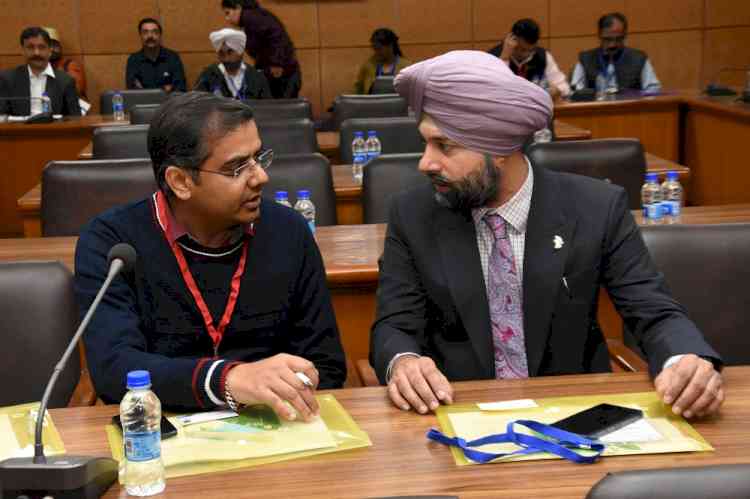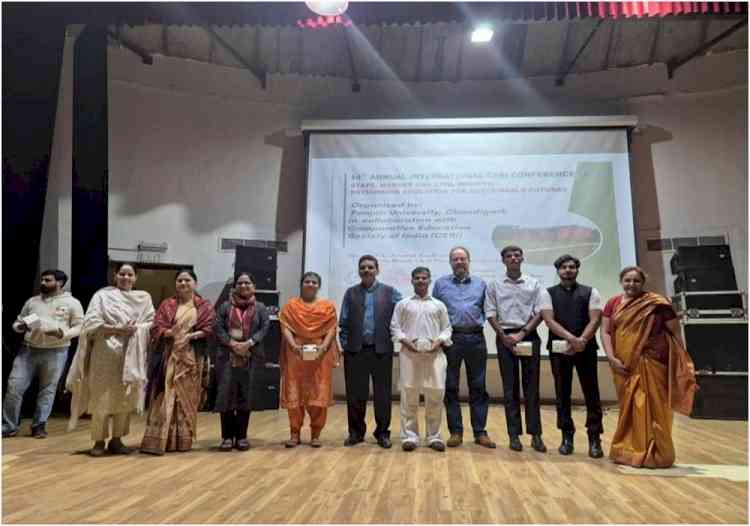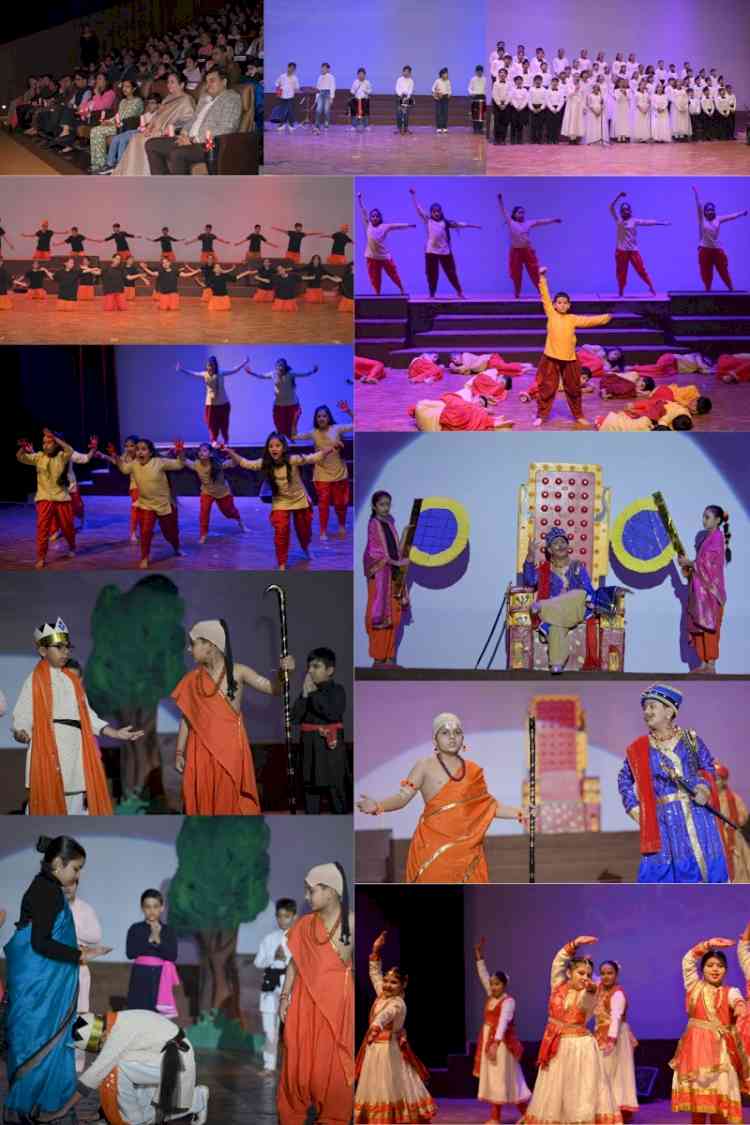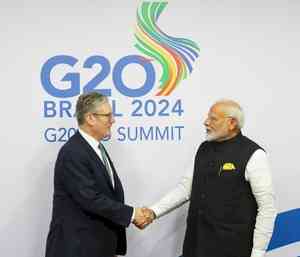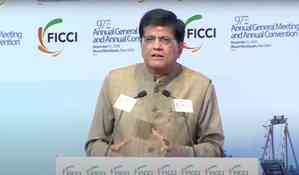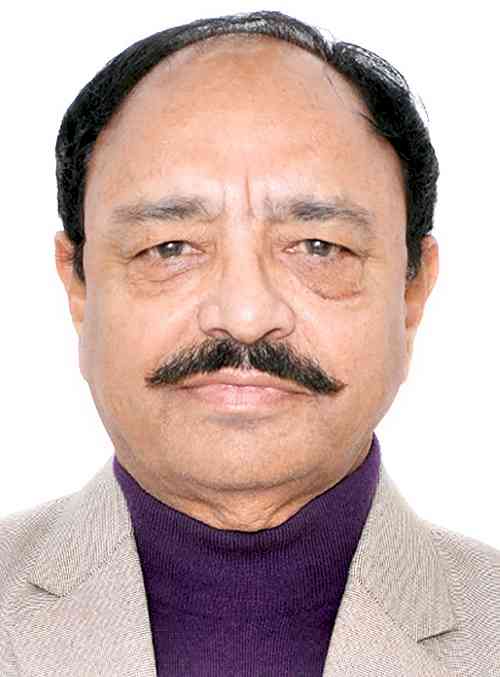17th edition of Annual Professor Pradeep Kumar Memorial Lecture
Professor Jagpal Singh, retired professor from IGNOU, New Delhi, delivered the 17th edition of the Annual Professor Pradeep Kumar Memorial Lecture organised by the Department of Political Science, Panjab University today.
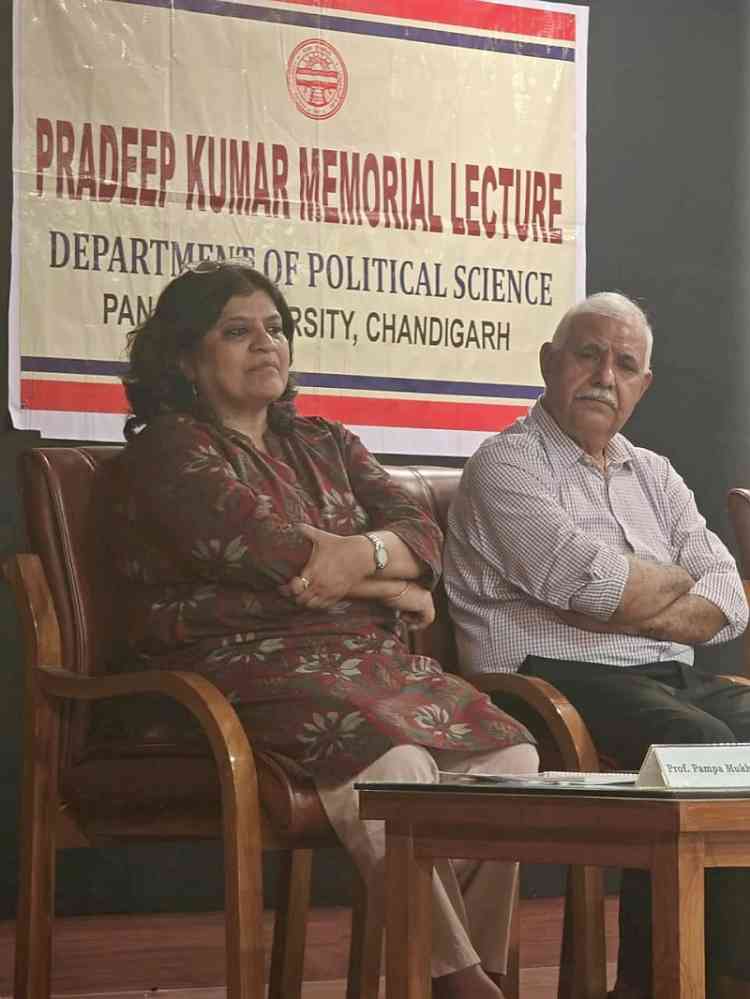
Chandigarh, September 20, 2024: Professor Jagpal Singh, retired professor from IGNOU, New Delhi, delivered the 17th edition of the Annual Professor Pradeep Kumar Memorial Lecture organised by the Department of Political Science, Panjab University today.
The lecture was titled ‘Regional Development and Ethnicity: Politics of Reorganisation of States’ with special reference to Uttar Pradesh. The late Professor Pradeep Kumar is considered one of the pioneering political scientists on these themes on state politics and politics around regional identity and statehood in India. Professor Emeritus Bhupinder Brar chaired the session and Professor Pampa Mukherjee, the Chairperson of the Department, proposed a vote of thanks at the successful completion of the event.
Professor Jagpal Singh located the statehood movements in Uttar Pradesh in the broader context of movements for state reorganisation in post-Independence India and the factors commonly held responsible for the rise, decline and differing outcomes of these movements. He discussed statehood movements in three regions of Uttar Pradesh; namely, Western UP, Eastern UP and Bundelkhand and pointed out how in each of these regions one can trace the dynamic of the movements in terms of four phases starting from the late colonial/early independence times to the present. He highlighted the distinctiveness of the Western UP region from the other two in which the different articulations of ethnic identity emerge as significant in influencing the nature of the demand and the positioning of the important regional forces in contrast to the other two regions where backwardness in terms of lack of economic development have been critical factors which have overridden ethnic considerations.
Adopting a comparative framework to study the three regions, Professor Singh argued that both factors, levels of regional development and the contradictions within ethnic groups, have to be considered together to understand the nature and trajectory of these statehood movements. This will also allow due attention to be paid to the social bases of support for such movements and the role of the political class in endorsing or rejecting demands for separate statehood.


 City Air News
City Air News 
